Unless you are willing to not get treatment, have a nurse tell you to go lay down whilst having a stroke or basically are not trying to get so we whilst alive please go here. Otherwise have your PCP help you with treatment. This place will kill you.
About Midwest Detox Center
Medication assisted treatment is available to reduce drug cravings and ease withdrawal symptoms. During MAT, they use FDA approved medicines, like buprenorphine, methadone and naltrexone that are safe and effective. An initial assessment will help them determine the best medication for your needs.
Their detox programs are gender-specific, which allows guests to focus on recovery without outside distractions that could interfere. You’ll also have a comfortable atmosphere that encourages recovery. The center offers personalized bedrooms and around the clock supervision so you won’t feel isolated throughout detox. They understand that feeling alone can lead to relapse issues.
Alongside medication management, you’ll have access to proven therapies, like cognitive behavioral therapy and dialectical behavior therapy. Guests have individual and group therapy sessions.
Individual therapy allows one on one time with a skilled professional to discuss thoughts and feelings that aren’t conducive to a sober lifestyle. You may work on developing healthy coping skills for life’s stressful situations, recognize substance use triggers and learn relapse prevention methods.
Group therapy provides a more open setting with others in recovery who understand your experiences with addiction. They may offer valuable feedback that relates to your sobriety.
Family therapy gives your loved ones information about the disease of addiction and may help them set appropriate boundaries. It can also assist with mending relationships affected by substance use.
Latest Reviews
Rehab Score
Gallery
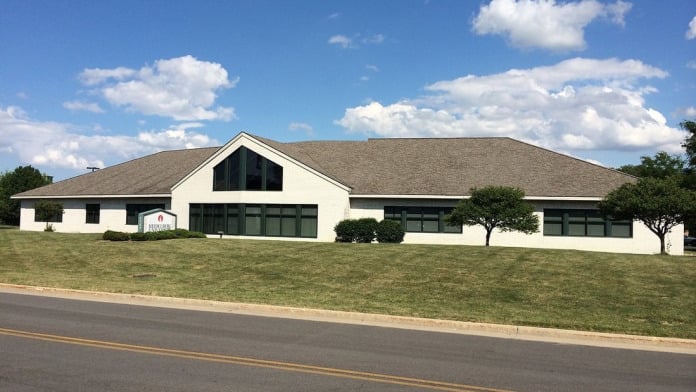
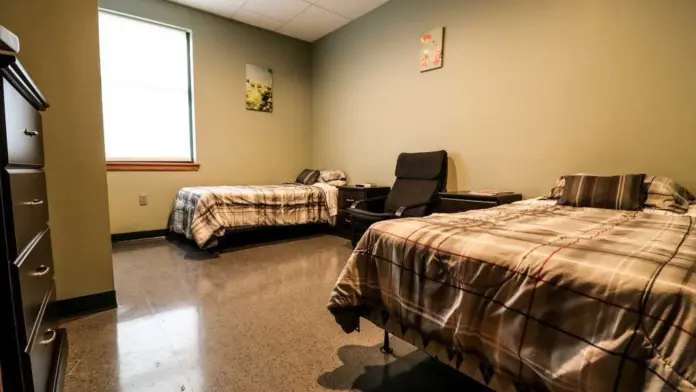
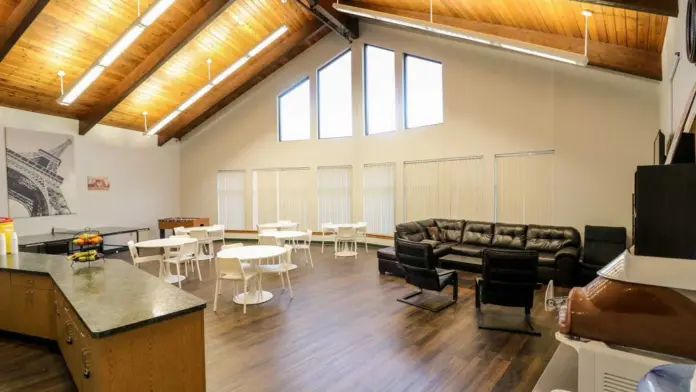
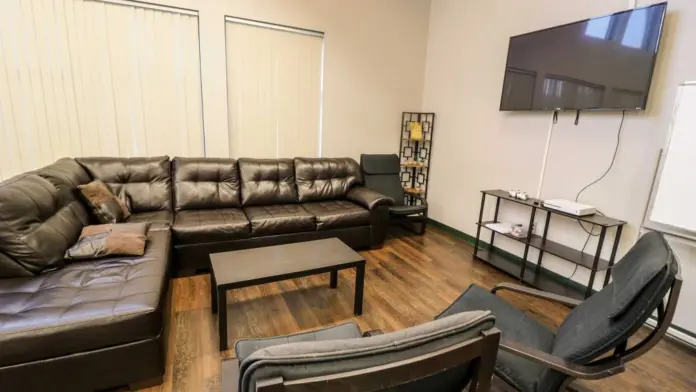
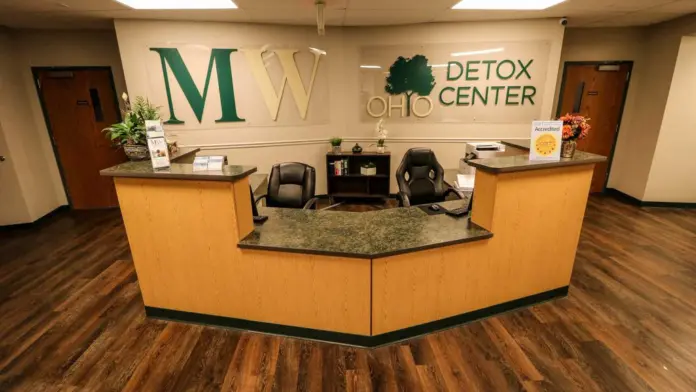
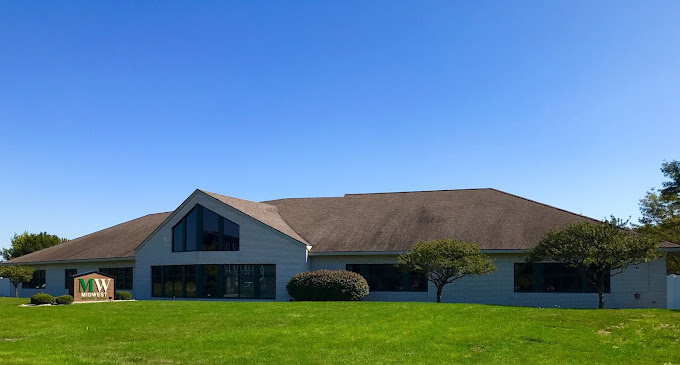

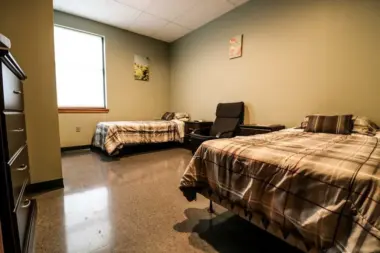

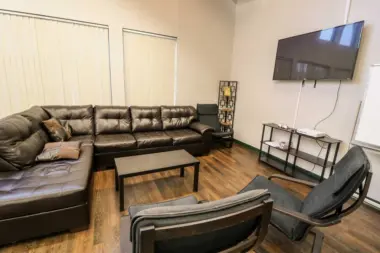
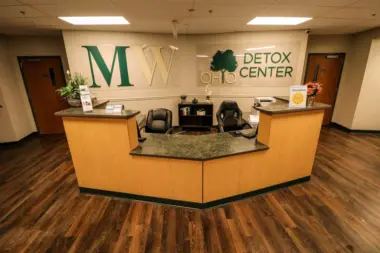
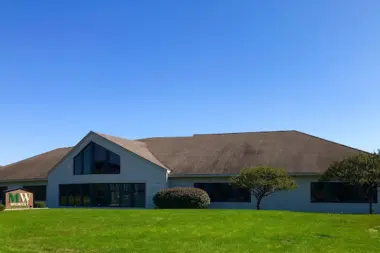
Accepted Insurance
Other Forms of Payment
Self-pay involves paying for treatment out of your own pocket. You can use savings or credit, get a personal loan, or receive help from family and friends to fund your treatment. If you don't have insurance or your insurance plan doesn't cover a specific program, self-pay can help ensure you still get the care you need.
Private insurance refers to any kind of healthcare coverage that isn't from the state or federal government. This includes individual and family plans offered by an employer or purchased from the Insurance Marketplace. Every plan will have different requirements and out of pocket costs so be sure to get the full details before you start treatment.
Private insurance refers to any kind of healthcare coverage that isn't from the state or federal government. This includes individual and family plans offered by an employer or purchased from the Insurance Marketplace. Every plan will have different requirements and out of pocket costs so be sure to get the full details before you start treatment.
Medicaid is a state based program that helps lower-income individuals and families pay for healthcare. Medicaid covers addiction treatment so those enrolled can use their coverage to pay for rehab. When a program accepts Medicaid the client often pays very little or nothing out of their own pocket.
Addiction Treatments
Levels of Care
OP would be the next level of care after IOP is completed successfully. OP is a treatment plan with a mild level of intensity. At this point, they are transitioning the client back into society with their jobs, family, and everyday life… but they don’t want them to be completely finished just yet. Coming back once a week for treatment is the last step towards freedom from active addiction, and transitioning to life that is sustained by an outside program of recovery. Typical OP programs offer group and individual services 1-2 days per week for 3 hours. In addition to OP participation, clients will be required to attend daily support group meetings (ie 12-step meetings), and submit to regular and random drug screening (urinalysis).
Clients who have just completed detox or who are at an increased risk of relapse, such as those experiencing a life crisis, typically enroll in an inpatient rehab. There, they receive housing, meals, and intensive clinical supervision. Inpatient treatment typically involves extensive individual, group, and family therapy. Clients may also participate in life skills training to support their long-term sobriety. Integrative rehab centers offer a variety of evidence-based holistic therapies, such as meditation or equine therapy.
After PHP, clients transfer to IOP, which is a treatment plan with a moderate level of intensity. At this phase, clients will be allowed more freedoms that they weren’t allowed to experience in the PHP level of care (cell phones, possible employment, etc.). Typical IOP programs offer group and individual services of 10-12 hours per week, or 3 days per week. IOP sessions are offered in the morning or the evening, to avoid conflicting with a clients job or family life. In addition to IOP participation, clients will be required to attend daily support group meetings (ie 12-step meetings), and submit to regular and random drug screening (urinalysis).
Rehab aftercare programs are designed to ensure clients receive continuing care while in the maintenance phase of recovery. Some clients may be in outpatient treatment, which is generally considered to be an element of drug rehab aftercare. The specific services provided in these programs are often determined by the client's case manager and care team in consultation with the client. Common services include peer coaching, career counseling, and 12 step program induction.
12-step programs are addiction recovery models based on Alcoholics Anonymous (AA). A number of substance abuse programs (including some drug and alcohol rehab centers) use the 12 steps as a basis for treatment. Beginning steps involve admitting powerlessness over the addiction and creating a spiritual basis for recovery. Middle steps including making direct amends to those who've been hurt by the addiction, and the final step is to assist others in addiction recovery in the same way. 12-Step offshoots including Narcotics Anonymous (NA), Cocaine Anonymous (CA), Dual Recovery Anonymous (DRA), Sex and Love Addicts Anonymous (SLAA) and Gamblers Anonymous (GA).
Sober Living Houses (SLHs), aka sober homes or halfway houses, are safe, substance-free, supportive living facilities for those recovering from substance abuse. Ideal for those who've just been through inpatient or outpatient treatment, SLHs are supervised environments with rules that support sobriety, such as curfews, shared chores, and therapeutic meetings. Residents are also often trained on life skills and coping skills to make it easier to transition into society. SLHs also provide a strong sense of community that can lead to the kind of deep and lasting connections with other sober individuals that supports a new, healthy lifestyle.
Intervention services help family members prepare for a drug intervention in Ohio. During an intervention, family members typically read letters they have prepared that explain how the individual's substance abuse has affected their lives and relationships. Each family member also explains what they will do if the individual does not agree to get treatment. An intervention specialist offers support to guide this discussion and makes appropriate treatment recommendations.
Midwest Detox Center offers medically assisted detox in their state of the art facility. Their 24 hour nursing staff, along with medical directors, clinicians, and case managers, will assist you in the beginning of your new journey. Their detox program typically lasts 5-10 days, and they will never rush a client into the next phase of treatment if they aren’t physically ready. They realize that after leaving detox, it is common for clients to have cravings. Because of that, they make sure that each client is transitioned immediately by staff to the next level of care and to a safe sober living home.
Treatments
The goal of treatment for alcoholism is abstinence. Those with poor social support, poor motivation, or psychiatric disorders tend to relapse within a few years of treatment. For these people, success is measured by longer periods of abstinence, reduced use of alcohol, better health, and improved social functioning. Recovery and Maintenance are usually based on 12 step programs and AA meetings.
Drug rehab in Ohio provides comprehensive treatment to address the physical and psychological needs of those struggling with substance use disorders. This may involve inpatient and/or outpatient care.
Dual diagnosis is the term used when a person has a mood disorder such as depression or bipolar disorder (also known as manic depression) and a problem with alcohol or drugs. A person who has a dual diagnosis has two separate illnesses, and each illness needs its own treatment plan. With one illness left untreated, the chance of the other illness improving is slim to none. One illness will often feed and further complicate the other, making the treatment and approach for higher-risk clients like these different than clients with only substance abuse or only mental disorders.
A combined mental health and substance abuse rehab has the staff and resources available to handle individuals with both mental health and substance abuse issues. It can be challenging to determine where a specific symptom stems from (a mental health issue or an issue related to substance abuse), so mental health and substance abuse professionals are helpful in detangling symptoms and keeping treatment on track.
Opioid rehabs specialize in supporting those recovering from opioid addiction. They treat those suffering from addiction to illegal opioids like heroin, as well as prescription drugs like oxycodone. These centers typically combine both physical as well as mental and emotional support to help stop addiction. Physical support often includes medical detox and subsequent medical support (including medication), and mental support includes in-depth therapy to address the underlying causes of addiction.
Ohio's substance abuse treatment programs can support individuals struggling with drug and alcohol use. Typically available on an outpatient or inpatient basis, these programs employ evidence-based therapies such as cognitive-behavioral therapy (CBT), dialectical behavior therapy (DBT), and holistic approaches to provide effective addiction treatment. This comprehensive approach ensures long-term sobriety, improved mental health, and coping skills to overcome risk of relapse.
Programs
Adult rehab programs include therapies tailored to each client's specific needs, goals, and recovery progress. They are tailored to the specific challenges adult clients may face, including family and work pressures and commitments. From inpatient and residential treatment to various levels of outpatient services, there are many options available. Some facilities also help adults work through co-occurring conditions, like anxiety, that can accompany addiction.
Young adulthood can be an exciting, yet difficult, time of transition. Individuals in their late teens to mid-20s face unique stressors related to school, jobs, families, and social circles, which can lead to a rise in substance use. Rehab centers with dedicated young adult programs will include activities and amenities that cater to this age group, with an emphasis on specialized counseling, peer socialization, and ongoing aftercare.
Rehabs for women provide a safe, nurturing space for female clients to heal. These treatment programs consider the specific obstacles that women can face during recovery and place a special emphasis on mental, social, physical, and reproductive health. They explore how each woman's experience has shaped the trajectory of their substance use, addressing issues such as sexual abuse and past trauma.
Men face specific challenges and concerns when seeking addiction treatment. Gender-specific recovery programs help them tackle these issues head-on in an environment that's focused, targeted, and distraction-free. It also gives them the opportunity to connect with and learn from other men who have been through a similar journey and can offer support for the next step.
Clinical Services
Cognitive Behavioral Therapy is a designed alliance between coach and client where the coaching relationship continually gives all the power back to you, the client. They believe that you know the answers to every question or challenge you may have in your life, even if those answers appear to be obscured, concealed or hidden inside. Their skills are about knowing the right questions to ask and having the right tools and techniques to empower you to find those answers within yourself.
The main goals of dialectical behavior therapy are to teach you how to regulate your emotions, develop positive ways to cope with stress, improve your relationships, and live in the moment. This therapy lasts about six months and involves weekly individual and group sessions.
Group therapy is any therapeutic work that happens in a group (not one-on-one). There are a number of different group therapy modalities, including support groups, experiential therapy, psycho-education, and more. Group therapy involves treatment as well as processing interaction between group members.
In individual therapy, a patient meets one-on-one with a trained psychologist or counselor. Therapy is a pivotal part of effective substance abuse treatment, as it often covers root causes of addiction, including challenges faced by the patient in their social, family, and work/school life.
Therapists who apply motivational interviewing in Ohio don't try to confront clients or force advice onto them. Instead, they listen and come alongside clients to help them explore why and how they might decide to make changes for themselves.
Trauma therapy addresses traumatic incidents from a client's past that are likely affecting their present-day experience. Trauma is often one of the primary triggers and potential causes of addiction, and can stem from child sexual abuse, domestic violence, having a parent with a mental illness, losing one or both parents at a young age, teenage or adult sexual assault, or any number of other factors. The purpose of trauma therapy is to allow a patient to process trauma and move through and past it, with the help of trained and compassionate mental health professionals.
Some couples therapy in Ohio is designed as short term treatment to address a specific problem in the relationship, such as anxiety, depression, or addiction. Other couples therapy may focus on general strengthening of the relationship by improving interactions.
Research clearly demonstrates that recovery is far more successful and sustainable when loved ones like family members participate in rehab and substance abuse treatment. Genetic factors may be at play when it comes to drug and alcohol addiction, as well as mental health issues. Family dynamics often play a critical role in addiction triggers, and if properly educated, family members can be a strong source of support when it comes to rehabilitation.
Life skills trainings involve all the skills a person must have in order to function successfully in the world. The case managers help each client tackle their needs as they near completion of treatment, assisting them with legal cases, job placement, and any other help that can assist clients integrate back into society.
Nutrition therapy helps with detox and drug rehab treatment in Ohio. This treatment gives you the skills you need to develop healthy eating habits, which help you recover more quickly and maintain long term sobriety.
Recreational therapy supports recovery from drug and alcohol addiction by providing you with enjoyable activities that improve your physical and mental health. When you engage in sports, creative arts, and nature excursions, it helps reduce your cravings and stress levels while building a supportive community of peers who can help promote your long term sobriety.
Amenities
-
Yoga Studio
-
Private Rooms
Staff & Accreditations
Staff
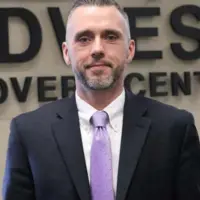
Josh Dressel
Co-Founder/Director of Operations
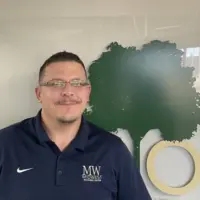
Justin Ochmanek
Director of Operations
Accreditations

The Commission on Accreditation of Rehabilitation Facilities (CARF) is a non-profit organization that specifically accredits rehab organizations. Founded in 1966, CARF's, mission is to help service providers like rehab facilities maintain high standards of care.
CARF Accreditation: Yes

The Joint Commission, formerly known as JCAHO, is a nonprofit organization that accredits rehab organizations and programs. Founded in 1951, the Joint Commision's mission is to improve the quality of patient care and demonstrating the quality of patient care.
Joint Commission Accreditation: Yes
Contact Information
1757 Indian Wood Circle
Maumee, OH 43537




